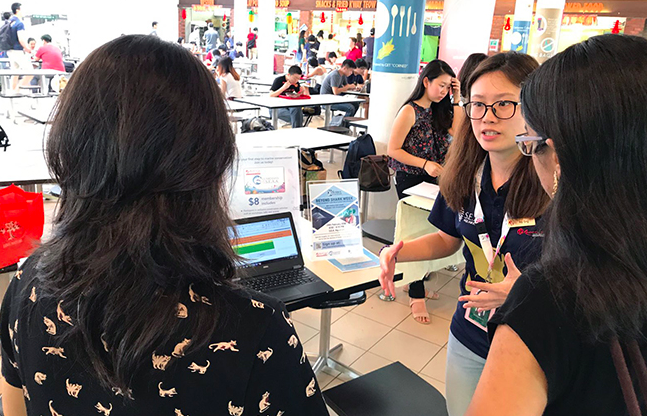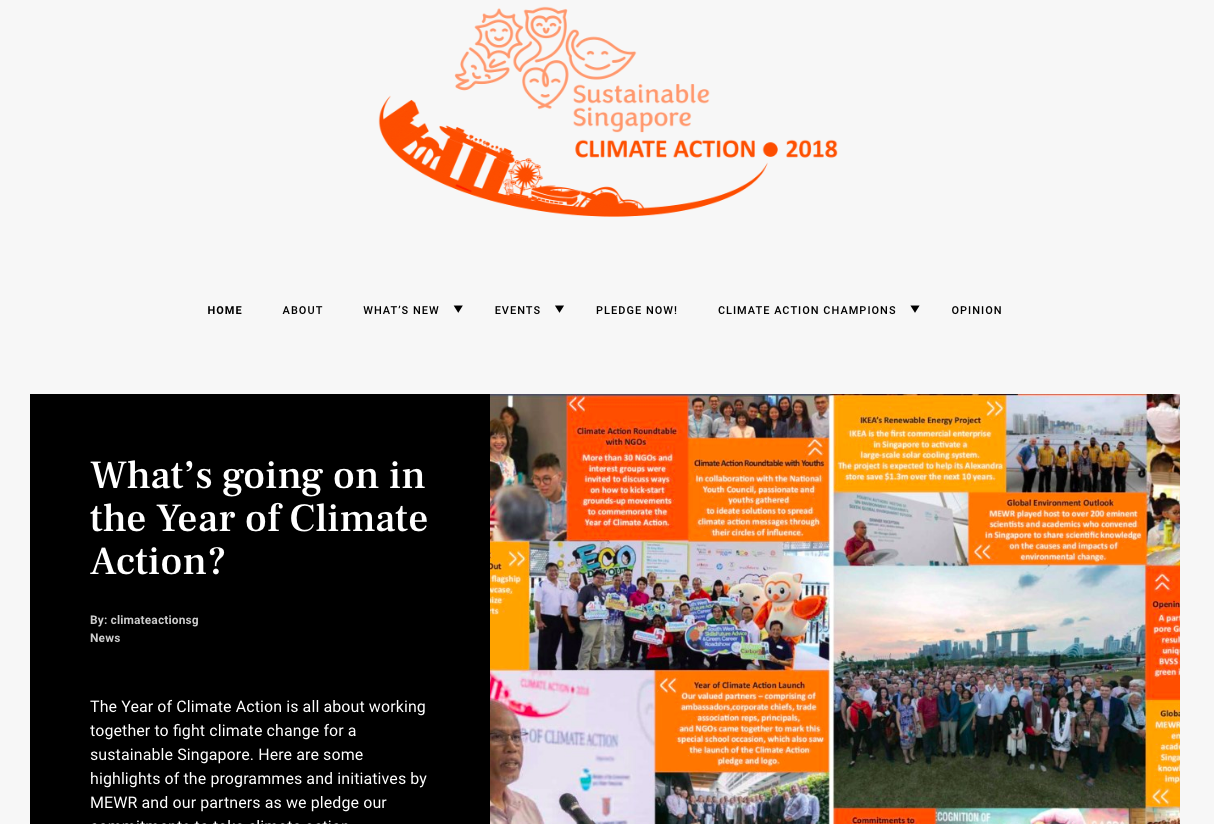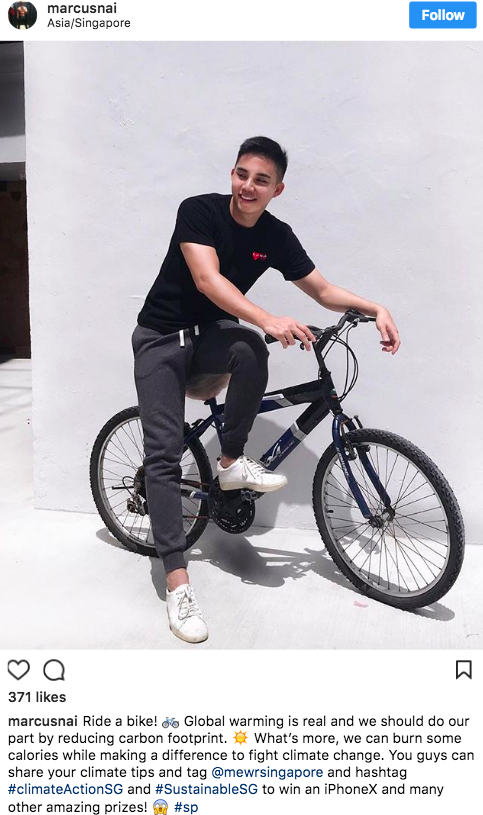Government uses communities to promote climate actions. Over time, these behaviours can be sustained even with minimal government intervention.

Well…not quite yet the traditional community as seen above. In this case, it is the collective effort of Singapore residents. I will be including some of such key initiatives. They seem to complement governmental approaches (external), by targeting internal factors of behaviour.
1. Collective Climate Action Pledge
- Public declaration: To be done through the MEWR (Ministry of the Environment and Water Resources)’s website to show their readiness to take climate action – by picking a list of actions to commit to. Individual entities combine their pledges (collective effort) towards climate change.
- Social norms: Number displayed shows us how many entities have pledged for action. It attempts to influence others to do the same as people like to do what others do – conformity.
- Attribution of responsibility: People feel more responsible as this pledge gets people to make a verbal commitment. Hence, this fosters continual sustainable behaviours.
2. Community-run blog
- Knowledge: The public can stay up-to-date on all climate-related matters in Singapore. The Kals & Maes (2002) study explained that ecological awareness is a powerful predictor of sustainable behaviour.
Knowledge goes hand-in-hand with intention – Since people visiting this site likely have more intention to find out how they can take climate action, they will respond more favourably to these information - Perceived Behavioural Control / Self-Efficacy: Climate action stories, events and photos on the website are shared and contributed by the public. Readers of the site might have greater perceived ability that they can do something towards climate change.
This could be due to:
a) Information is provided on the behavioural choices that they can take towards creating positive environmental impact,
b) Since other similar individuals can do it, so can they!
3. Social media #ClimateActionSG
- MEWR (Ministry of the Environment and Water Resources) engaged social media micro-influencers: To raise awareness on climate change and actions that people could take (once again, ecological awareness powerfully predicts sustainable behaviours!)
- Peer-perceived endorsement: Public could respond better to climate change actions when their social media friends are the ones endorsing them. Interestingly, females are more responsive to these social cues and could respond better to such norms!
4. Environmental education in more informal settings
- Encouraging initiatives that have been taken by distinct community units: They aim to change people’s attitude and resulting behaviour about climate change by providing them with information (awareness). People could be more informed about climate change risk as well. Nature Society (Singapore): Organises activities e.g. talks and forums to explain the link between climate change and conservation of biodiversity. As wildlife preservation has been a hot issue, such framing of message could motivate audiences to take action. Singapore Youth for Climate Action: Zero-waste roadshow which prompts people to eat-in, or to use their own takeaway containers if they have to eat out.



